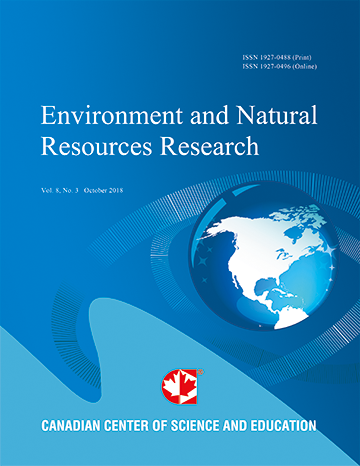Impact of Climate Variability on Human Health in Ilorin, Nigeria
- Tunde M.
- Adeleke A.
- Adeniyi E.
Abstract
Climate change is a global issue and its impact is felt everywhere by both human and ecosystem. Climate variability and change threaten the well being of humans. This study examines the impact of climate variability on human health with the use of regression, correlation and ANOVA. The result shows that there is a very strong positive correlation between minimum temperature and typhoid (0.844), maximum temperature and malaria (0,794), typhoid (0.793), between sunshine and typhoid (0.667), malaria (0.630). The other variables are weakly correlated with the diseases. The regression analysis reveals that 49%, 88% and 79% of the variance in asthma, typhoid and malaria can be respectively explained by the climatic parameters under study to a certain extent. This implies that there may be some other factors that are responsible for the selected diseases in the area. Such factors may include biological (genotype, micro-organisms, and allergies), unhygienic environment and economic (poor living conditions). Recommendations made include weather report should be broadcasted to people through the media in order for them to understand variation in the climate and how to adapt and mitigate the effect of the changes. Furthermore, people should be enlightened on the effects of anthropogenic activities in the atmosphere and how to reduce these effects for sustainable development.
- Full Text:
 PDF
PDF
- DOI:10.5539/enrr.v3n1p127
Journal Metrics
Google-based Impact Factor (2016): 6.22
h-index (November 2017): 12
i10-index (November 2017): 19
h5-index (November 2017): 11
h5-median (November 2017): 12
Index
Contact
- Emily LinEditorial Assistant
- enrr@ccsenet.org
